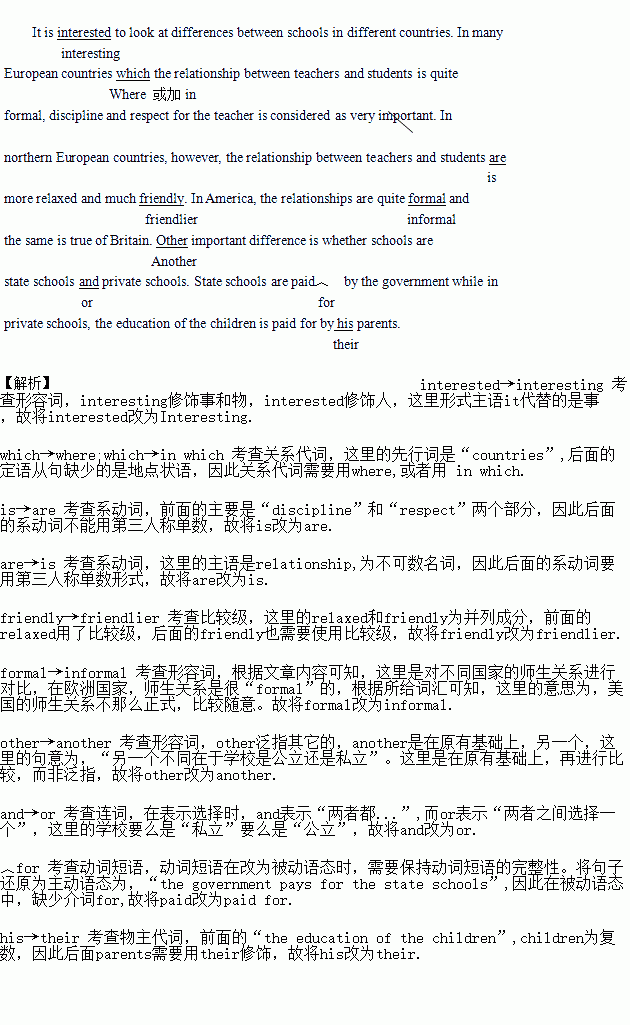题目内容
假定英语课上老师要求同桌之间交换修改作文,请你修改你同桌写的以下作文。文中共有10处语言错误,每句中最多有2处.涉及一个单词的增加、删除或修改。
增加:此行缺一个词在缺词处加一个漏字符号(/\),在其下面写出该加的词。
删除:把多余的词用斜线(\)划掉。
修改:在错的词下划一横线,在该词下面写出改正后的词。
注意: 1.每处错误及其修改均仅限一词;
2.只允许修改10处,多者(从第11处起)不计分 。
It is interested to look at differences between schools in different countries. In many European countries which the relationship between teachers and students is quite formal, discipline and respect for the teacher is considered as very important. In northern European countries, however, the relationship between teachers and students are more relaxed and much friendly. In America, for example, the relationships are quite formal and the same is true of Britain. Other important difference is whether schools are state schools and private schools. State schools are paid by the government while in private schools, the education of the children is paid for by his parents.


 t always easy.
t always easy. , they often reach excellent academic results.
, they often reach excellent academic results.